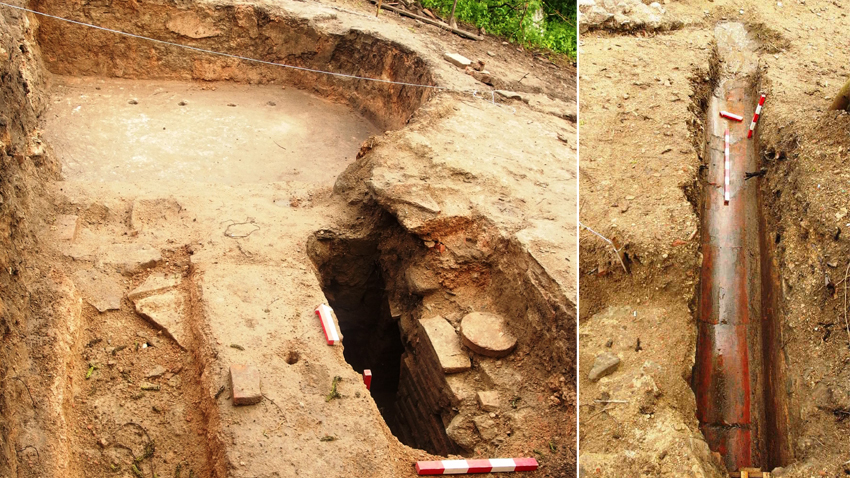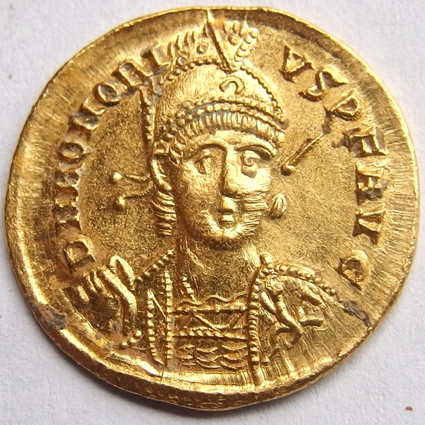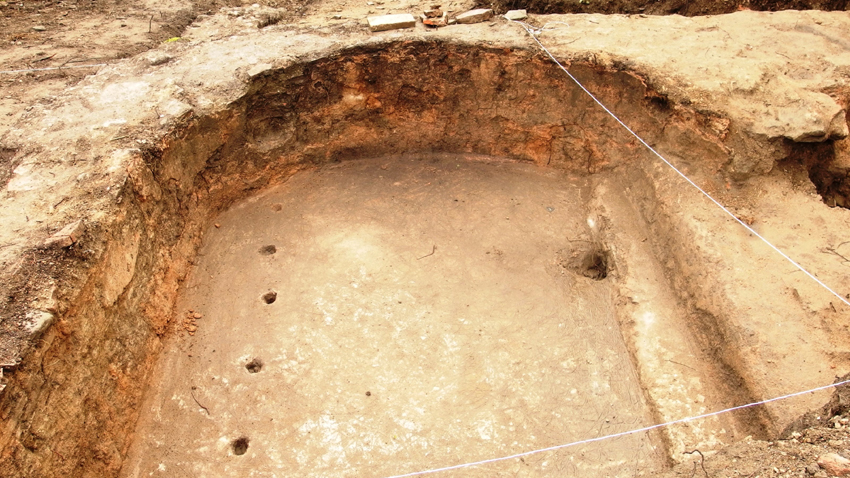The ancient road station of Sostra was compared to a 5-star hotel by Director of the National Museum of History /NMH/ Bozhidar Dimitrov. It was discovered recently close to the fortress of the same name near the village of Lomets, Troyan region, where excavations have been ongoing for years. The station is located on a major ancient road that starts from the ancient town of Esqus on the Danube /close to the village of Gigen/ and continues towards Philippopolis, today the city of Plovdiv in southern Bulgaria.
“This road was of strategic importance for the Roman Empire and its northern provinces”, Associate Prof. Ivan Hristov, head of the excavations said in an interview for Radio Bulgaria. “That was Via Militaris – a military road, under the direct jurisdiction of the emperors and essential for the quick transportation of military units from Thrace to Moesia and vice versa. On the other hand, it was an economic road artery, linking the Danube with the Rhodope Mountain and the Aegean Sea. It was like a highway, with two lanes. Dozens of fortified road stations were responsible for its maintenance, with forts and watch-towers.”

The excavations at Lomets was started way back in the 1970s by renowned archaeologist Georgi Kitov. He explored several Thracian mounds from the Roman age and a mausoleum with a necropolis. NMH’s Ivan Hristov and Sergey Tobanov from the Archaeological Institute with the Bulgarian Academy of Sciences /BAS/ renewed excavations in 2002. A fortified military camp, a building from the Roman civilian settlement, the ancient road in front of the fortress wall, the St. George basilica and a sanctuary of the Thracian horseman /a Thracian god/ right next to Sostra have been studied to date.
 “Actually this is the valley of the River Osam, close to Lomets village, where we have more than 6 square kilometers of buildings,” the archaeologist says. “It is urbanized: there are roads, sewerage systems, sanctuaries, a necropolis and a settlement. It took us a long time to figure out where to look for Sostra, as it is made mention of in many Roman maps as a road station. We managed to locate it in April and now we have a complete model of a Roman settlement, which coulc be called semi-urban.”
“Actually this is the valley of the River Osam, close to Lomets village, where we have more than 6 square kilometers of buildings,” the archaeologist says. “It is urbanized: there are roads, sewerage systems, sanctuaries, a necropolis and a settlement. It took us a long time to figure out where to look for Sostra, as it is made mention of in many Roman maps as a road station. We managed to locate it in April and now we have a complete model of a Roman settlement, which coulc be called semi-urban.”
As far as the station is concerned, archaeologists have so far discovered three large rooms in its northeastern part. They had floor heating, the so-called hypocaust – round tubes with hot air and arches with brick vaults, i.e. these are modern Roman buildings from that period. “The facilities include a bathroom with a hot water pool, but we also found signs there were other pools as well, both for hot and cold water,” Ivan Hristov points out.

The excavations lie in private property and the Municipality of Troyan intends to buy it off. “If this happens and the remains are fully unearthed and studied, we would have an incredibly well-preserved complex. The northeastern walls that we are currently revealing are preserved up to 1.2 – 1.5 m in places. Picture all this displayed in broad daylight. The important thing is that we have ruins, situated centimeters away from the Lovech – Troyan road artery, which immediately makes the complex a very convenient tourist site. Not to mention the fact that the valley of the River Osam is breahtakingly beautiful,” Associate Prof. Ivan Hristov says in conclusion.
English version: Zhivko Stanchev
Photos: National Museum of HistoryThe Days of Croatian Archaeological Heritage, which will last until 8 November, begin today at the National Archaeological Institute with Museum at the Bulgarian Academy of Sciences (NAIM-BAS) in Sofia. The event is organised by the Croatian Embassy in..
Today, 6 November, marks 104 years since the annexation of the Western Outlands in 1920. Traditionally Bulgarian territories in south-eastern Serbia and northern Macedonia were ceded to the Kingdom of Serbs, Croats and Slovenes in 1920 as a result of..
Volunteers joined the efforts to clean and restore the monastery St. Spas near Bakadzhik peak. The campaign is being organized on 2 November by Stoimen Petrov, mayor of the nearby village of Chargan, the Bulgarian news agency BTA reports. The..
On November 24, the Bulgarian Orthodox Church honors St. Catherine (Sveta Ekaterina in Bulgarian) , who was one of the most educated women of her time...
On November 25, the Bulgarian Orthodox Church honours the memory of St. Clement of Ohrid – a distinguished archbishop, teacher and scholar. He was among..

+359 2 9336 661
